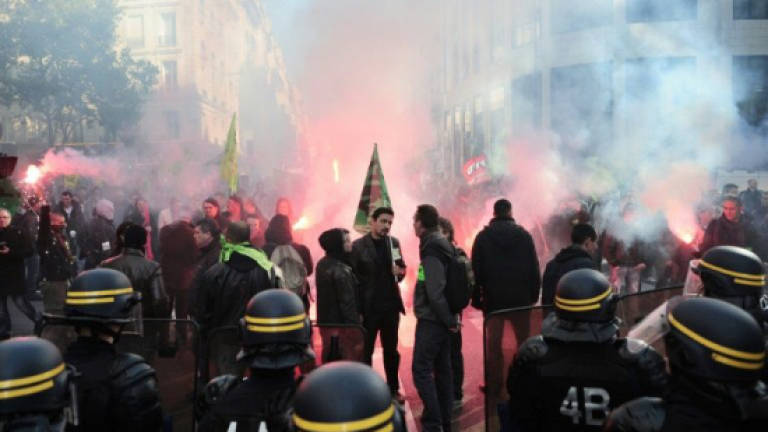Taking to the streets: France's big protests

PARIS: As unions unleash protests and strikes on Thursday and rail workers threaten rolling action afterwards, here is a look back at the most significant episodes of labour action to hit strike-prone France.
May 1968
The country's biggest strike ever comes amid the upheaval of the May 1968 uprising by students who occupy universities and battle police as part of demands for more freedoms.
They join forces with factory and farm workers seeking labour reforms who embark on a strike that paralyses the country for about two weeks. Around seven to 10 million workers take part.
Ports, railways, airports and metros grind to a halt as rubbish collects in the streets and bodies are left unburied in the capital.
Talks between the government, unions and bosses culminate in the Grenelle Agreements that result in a 35% hike in the minimum wage and a 10% pay rise more generally.
1995: austerity
In mid-November 1995 Prime Minister Alain Juppe announces sweeping austerity measures to meet obligations to cut public sector debt.
Unions react swiftly and Nov 24 sees the launch of three weeks of demonstrations and strikes.
Paris is hit particularly hard with its transport system halted, resulting in huge traffic jams and scenes of lines of people walking to work in the winter cold.
Rail unions spearhead the movement, which also affects Eurostar services from the capital to London and Brussels, and other public sector workers sporadically join in.
The biggest demonstration is on Dec 12 when one to two million people march across the country.
It is the largest social unrest since May 1968.
Juppe is forced to abandon his reforms for pensions and the state-owned operator, SNCF, but sticks to the rest of his plan, including increases in social security contributions.
2003: pension reform
From February to early June a series of public sector strikes against a pension reform bill culminates in a May 13 demonstration, the biggest show of union muscle since 1995.
Authorities say one million people take part in demonstrations throughout the country; the unions put the figure at two million.
But the reform goes ahead.
2010: retirement age
When President Nicolas Sarkozy announces plans to raise the retirement age to 62 from 60, hundreds of thousands protest with a demonstration in Oct that is considered the biggest since 1995.
Police estimate the number of demonstrators nationwide at 1.23 million, while unions put the number at 3.5 million.
Blockades at oil refineries, fuel depots and port terminals leave one out of three service stations dry.
Parliament goes on to adopt the reform.
2016: labour law reform
Opposition to new laws presented by the Socialist government of Francois Hollande aimed at loosening France's rigid employment rules brings hundreds of thousands to the streets on several occasions in 2016.
Between May and June truck and train drivers, garbage collectors and oil refinery workers join the movement, leading to shortages of petrol.
In June a Paris demonstration descends into violence and the government threatens to ban new protests, which then fizzle out.
The legislation is pushed through parliament. — AFP